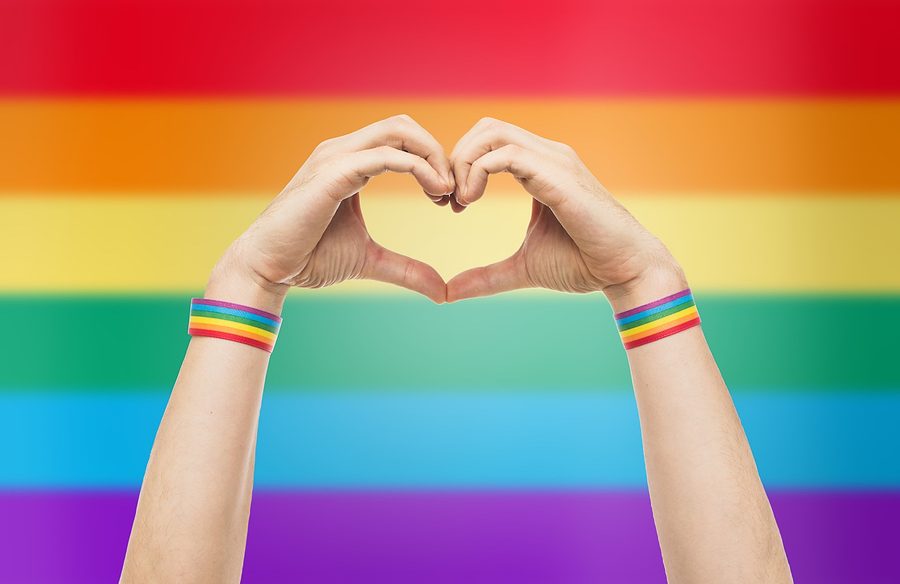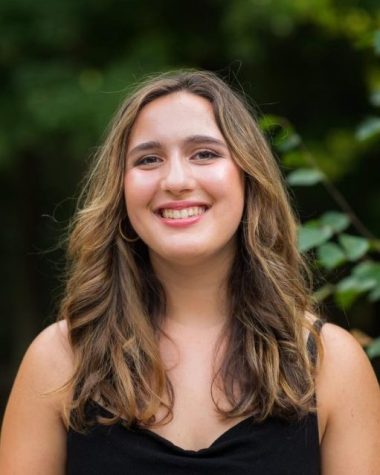Op-Ed: Stop Romanticizing LGBTQ+ Relationships
Grace Papas examines LBGTQ+ relationships. Photo purchased from Bigstock.com.
January 14, 2021
As a bisexual person, I go through my day-to-day life like any typical high school student.
Often, that includes talking to friends about romantic interests and relationships. As a teenager, I like offering advice on these topics.
Just the other day, I was conversing with one of my friends about a guy she’s into, and how he tends to ignore text messages. That’s when she said, “my life would be so much easier if I liked girls, too.”
I shook it off, as I do when I usually hear such off-the-cuff remarks. But if I’m being honest, whenever something like this happens I feel indignant.
I get that sometimes people don’t realize the power of words, which may seem harmless in passing. I won’t force you to correct yourself if you slip up, because that’s not who I am. But I’ve heard similar impromptu remarks more times than you’d think, and it’s really starting to bug me.
I felt like telling my friend “no, your life wouldn’t be easier if you also identified as a member of the LGBTQ+ community.” To think otherwise, or that your dating troubles would vanish, is a harmful statement—especially for queer people.
This is harmful. No matter one’s sexuality or gender identity, there will always be bad people, even predators, that certain demographics encounter. Not only that, but this mindset of “if only I were gay” invalidates the struggles of queer people who have been harassed, abused, and even killed for being who they are.
The fact is that women in lesbian relationships and men in gay relationships—and anyone anywhere the gender spectrum—can be just as abusive, neglectful, and just plain unpleasant as either a man or woman in a heterosexual relationship.
When queer relationships are romanticized, you hide behind the rose colored glasses that people in the LBGTQ+ community can do no wrong, because they are queer.
Being gay doesn’t mean every relationship is perfect and happy. Sometimes, it’s the contrary because no matter what, some will always make mistakes and take advantage of others. This can be magnified by teenage vulnerability, and even more so in the case of queer teens. That’s the reality.
What’s also clear, statistically speaking, is that queer people encounter higher degrees of violence, including rape and sexual assault. Moreover, our society has hyper-sexualized LGBTQ+ people, and stigmatizing our relationships can lead to additional hardships in our relationships.
A 2010 survey conducted by the Centers for Disease Control and Prevention found that 44 percent of lesbians and 61 percent of bisexual women experience rape, physical violence, or stalking by an intimate partner, compared to 35 percent of straight women.
Meanwhile, 26 percent of gay men and 37 percent of bisexual men experience rape, physical violence, or stalking by an intimate partner, compared to 29 percent of straight men.
Within the LGBTQ+ community, transgender people and bisexual women face the most alarming rates of sexual violence. Among both of these populations, sexual violence begins early, often during childhood.
The 2015 U.S. Transgender Survey found that 47 percent of transgender people are sexually assaulted at some point in their lifetime.
All of these numbers being hidden by the pretty, internet-generated aesthetic promoted by social media. Don’t get me wrong, I’m all for promoting LGBTQ+ content and spreading positivity, but violence is never okay.
That’s true whether you’re straight, gay, bisexual, or any other sexuality. It’s not pretty, but you have to be aware of reality for anything to change.
And it upsets me to know that anybody has an idealized image of what they think it’s like being queer, fueled by social media that loves to magnify the “pretty details” instead of the “big picture,” which doesn’t help anyone.
The fact is that the LGBTQ+ community can be quite flawed, and nowhere near as perfect as the way it presents sometimes, but really that’s just the case with most things on social media.
Our dating lives aren’t necessarily different from a straight person’s, especially as a teenager. We still need to build conversations around these issues and make sure that queer people feel safe and confident, whether they are single or in a relationship.
Everyone needs to create safe spaces where people feel comfortable coming forward with painful stories, without being invalidated by a “keyboard warrior.” That way, the predators lurking in our society will have a harder time hiding.



























































Izzy • Apr 16, 2021 at 3:35 pm
This was very informative. As a comic writer I wanted to explore the idea of writing a gay character . However as a straight person I do not want to reinforce stereotypes while also introducing concepts we normally wouldnt understand without research. I do not want to be like other straight writers and romanticize being gay. I’ve read alot of reviews by the LQBTQ plus and alot of them feel they are misrepresented in alot of writings. I don’t want to let them down and make a story they will resonate with.
Mirna Goldberger • Jan 14, 2021 at 4:08 pm
Grace,
This was a very informative article. Thanks for sharing it and for making these difficult conversations visible so we can discuss them openly.
Ms. G